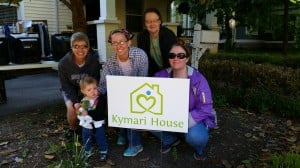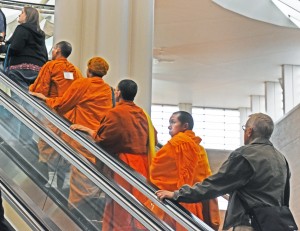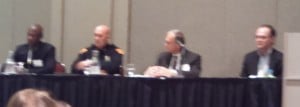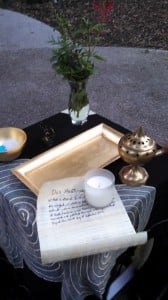
From Shutterstock
Safaa told us that, in her native language, she could tell us so much more about what Women of Faith means to her, but what she does say is perfectly clear.
“This group is my life.”
Members of our local Islamic Center continue to be threatened, but when she’s with us, she feels safe. We are safety. She tells us about the death threats and that it doesn’t make any sense to her because she’s been here since 1982. Her children were born and raised here. This is her home. Understandably, she’s moved to tears. We all are because we love our friend and hate to see her or anyone hurt because of ignorance and fear.
I choose to act as a member of Women of Faith because I know that the same thing that my Muslim neighbors are experiencing now could happen to any of us. There could be a brick through my window as easily as Safaa’s and the best protection we all have is the light of understanding. If I had to put the value of interfaith work into one word, it would be “safety.” Maybe this is all a rehash of things I’ve said before, but it bears repeating. The bridge-building we each do makes the world safer for all of us. The knowledge we share is the best defense we have against violence.
For the most part, we may be preaching to the choir, as it were, but getting them to sing is another matter. Even those who are inclined toward peace can be misinformed or ignorant. Someone who’s never met a Muslim or a Pagan or a Church of Christ Scientist or a UU will have a harder time seeing each of us as people with jobs and kids and fellow Homo sapiens having a human experience. Nearly five years ago, I didn’t have faces to go with words like “Muslim” or “Methodist” or “Quaker,” but now I see them clearly. Before we started Women of Faith, I was in the proverbial choir, but now I know how to sing.

And sing we shall, maybe even literally. We want to strengthen our voices this calendar year and we’re making plans to talk to whomever we can pin down for five minutes about who we are, what we do, and the value of interfaith work. Some of our plans are still very loose and floppy, but we have some things that we know we’re going to do. We’re going to find a new meeting place, have a food drive during the month of Ramadan, continue working with Kymari House, and (with Hermes’ blessings) talk to some local news media. We hope to speak to civic organizations, women’s groups, and local congregations, but I am most excited about our intention to go to Nashville Pagan Pride Day. Because the Pagan models of worship mainly revolve around small group or individual practice, it’s all that more difficult to reach a wide variety of Pagans in the area. With any luck, we’ll be able to talk to Sally Solitary, Dana Druid, and Heather Heathen as well as those in my more immediate circles.
I don’t know how this year is going to shake out. Our to do list is long and our intentions are ambitious, but we know the value of our work.
And there is much work to be done both in education for non-Pagans about Paganisms, and under our own big tent. It doesn’t surprise me, but it does disappoint me how much ignorance I hear or read from other Pagans. I can recall disparaging remarks about Christian Scientists, Atheists, Muslims, Christians of all stripes, and Unitarian Universalists, of all people, and every one was based on fear and ignorance. Many of us have ourselves been subject to this same kind of ignorance and fear, but the solution lies not in projecting that back onto others, but rather in continuing to pursue the two-way street of interfaith work.
If we want to be able to safely express our religions as we see fit, if we want our Pagan kids to grow up to not have to be afraid to talk about their beliefs and practices, and if we want to be able to build the infrastructure we crave without significant barriers imposed on us by the dominant religions, mutual understanding is absolutely necessary.
















